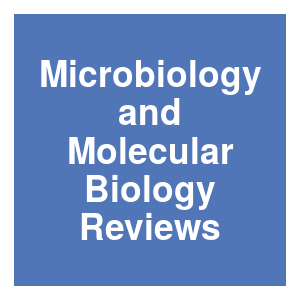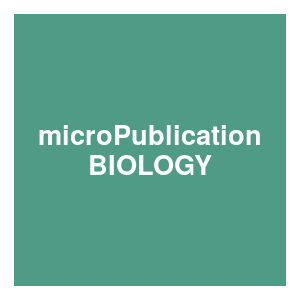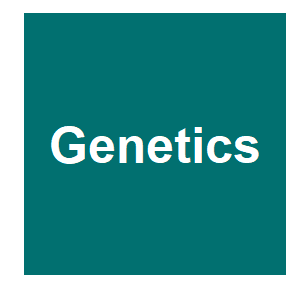
Keywords: fungi

|
A Natural Fungal Gene Drive Enacts Killing via DNA DisruptionA. S. Urquhart and D. M. Gardiner, mBio, e0317322. 2022.
Fungal spore killers are a class of selfish genetic elements that positively bias their own inheritance by killing non-inheriting gametes following meiosis. As killing takes place specifically within the developing fungal ascus, a tissue which is experimentally difficult to ... Keywords: Cas 9, CRISPR, fungi, gene drive synthetic, gene editing, plants |

|
Gene drive by Fusarium SKC1 is dependent on its competing alleleJ. M. Lohmar, N. A. Rhoades, T. M. Hammond and D. W. Brown, Fungal Genetics and Biology, 163:103749. 2022.
The Fusarium verticillioides SKC1 gene driver is transmitted to offspring in a biased manner through spore killing. The mechanism that allows SKC1 to kill non-SKC1 offspring while sparing others is poorly understood. Here we report that gene drive by SKC1 is dependent on SKC1's ... Keywords: Cas 9, CRISPR, fungi, gene drive synthetic, gene editing, plants |

|
Meiotic drive is associated with sexual incompatibility in NeurosporaA. Vogan, J. Svedberg, M. Grudzinska-Sterno and H. Johannesson, Evolution, 2022.
Evolution of Bateson-Dobzhansky-Muller (BDM) incompatibilities is thought to represent a key step in the formation of separate species. They are incompatible alleles that have evolved in separate populations and are exposed in hybrid offspring as hybrid sterility or lethality. In ... Keywords: Cas 9, CRISPR, fungi, gene drive synthetic, gene editing, plants |

|
Enforcement of Postzygotic Species Boundaries in the Fungal KingdomJ. Y. Chou, P. C. Hsu and J. Y. Leu, Microbiology and Molecular Biology Reviews, 2022.
Understanding the molecular basis of speciation is a primary goal in evolutionary biology. The formation of the postzygotic reproductive isolation that causes hybrid dysfunction, thereby reducing gene flow between diverging populations, is crucial for speciation. Using various ... Keywords: Cas 9, CRISPR, fungi, gene drive synthetic, gene editing, plants |

|
On the Mechanistic Basis of Killer Meiotic Drive in FungiS. J. Saupe and H. Johannesson, Annual Review of Microbiology, 76:305-323. 2022.
Spore killers are specific genetic elements in fungi that kill sexual spores that do not contain them. A range of studies in the last few years have provided the long-awaited first insights into the molecular mechanistic aspects of spore killing in different fungal models, ... Keywords: Cas 9, CRISPR, fungi, gene drive synthetic, gene editing, plants |

|
Non-Mendelian transmission of accessory chromosomes in fungiJ. Komluski, E. H. Stukenbrock and M. Habig, Chromosome Research, 2022.
Non-Mendelian transmission has been reported for various genetic elements, ranging from small transposons to entire chromosomes. One prime example of such a transmission pattern are B chromosomes in plants and animals. Accessory chromosomes in fungi are similar to B chromosomes ... Keywords: Cas 9, CRISPR, fungi, gene drive synthetic, gene editing, plants |

|
Isolation of rfk-2 (UV) , a mutation that blocks spore killing by Neurospora Spore killer-3A. Velazquez, E. Webber, D. O'Neil, T. Hammond and N. Rhoades, MicroPublication Biology, 2022.
Neurospora Spore killer-3 ( Sk-3 ) is a selfish genetic element that kills spores to achieve gene drive. Here, to help identify Sk-3’s killer, we performed a genetic screen for required for killing (rfk) mutations (see methods). The genetic screen uses Sk‑3 rskΔ × SkS ... Keywords: Cas 9, CRISPR, fungi, gene drive synthetic, gene editing, plants |

|
A-to-I mRNA editing controls spore death induced by a fungal meiotic drive gene in homologous and heterologous expression systemsJ. M. Lohmar, N. A. Rhoades, T. N. Patel, R. H. Proctor, T. M. Hammond and D. W. Brown, Genetics, 2022.
Spore killers are meiotic drive elements that can block development of sexual spores in fungi. In the maize ear rot and mycotoxin-producing fungus Fusarium verticillioides, a spore killer called SkK has been mapped to a 102-kb interval of chromosome V. Here, we show that a gene ... Keywords: Cas 9, CRISPR, fungi, gene drive synthetic, gene editing, plants |

|
The spore killers, fungal meiotic driver elementsA. A. Vogan, I. Martinossi-Allibert, S. L. Ament-Velásquez, J. Svedberg and H. Johannesson, Mycologia, 2022.
During meiosis, both alleles of any given gene should have equal chances of being inherited by the progeny. There are a number of reasons why, however, this is not the case, with one of the most intriguing instances presenting itself as the phenomenon of meiotic drive. Genes that ... Keywords: Cas 9, CRISPR, fungi, gene drive synthetic, gene editing, plants |

|
Versatile Applications of the CRISPR/Cas Toolkit in Plant Pathology and Disease ManagementM. S. Wheatley and Y. N. Yang, Phytopathology, 111:1080-1090. 2021.
New tools and advanced technologies have played key roles in facilitating basic research in plant pathology and practical approaches for disease management and crop health. Recently. the CRISPR/Cas (clustered regularly interspersed short palindromic repeats/CRISPR-associated) ... Keywords: Cas 9, CRISPR, fungi, gene drive synthetic, gene editing, plants |

|
RNA editing controls meiotic drive by a Neurospora Spore killerN. A. Rhoades and T. M. Hammond, bioRxiv, 2020.12.30.424869. 2021.
Neurospora Sk-2 is a complex meiotic drive element that is transmitted to offspring through sexual reproduction in a biased manner. Sk-2’s biased transmission mechanism involves spore killing, and recent evidence has demonstrated that spore killing is triggered by a gene called ... Keywords: Cas 9, CRISPR, fungi, gene drive synthetic, gene editing, plants |

|
Invasion and maintenance of spore killers in populations of ascomycete fungiI. Martinossi-Allibert, C. Veller, S. L. Ament-Velásquez, A. A. Vogan, C. Rueffler and H. Johannesson, bioRxiv, 2020.04.06.026989. 2020.
We show how ploidy level, rate of selfing, and efficiency of spore killing affect the invasion probability of a driving allele and the conditions for its stable coexistence with the non-driving allele. Our model can be adapted to different fungal life-cycles, and is applied here ... Keywords: Cas 9, CRISPR, fungi, gene drive synthetic, gene editing, plants |

|
The Enterprise: A massive transposon carrying Spokt meiotic drive genesA. A. Vogan, S. L. Ament-Velásquez, E. Bastiaans, O. Wallerman, S. J. Saupe, A. Suh and H. Johannesson, bioRxiv, 2020.03.25.007153. 2020.
Previously, we described a large genomic feature called the Spok block which is notable due to the presence of meiotic drive genes of the Spok gene family. The Spok block ranges from 110 kb to 247 kb and can be present in at least four different genomic locations within P. ... Keywords: Cas 9, CRISPR, fungi, gene drive synthetic, gene editing, plants |

|
Controversial ‘gene drive’ could disarm deadly wheat pathogenElizabeth Pennisi, Science, 2020.
The Fusarium fungus is the bane of every wheat farmer’s existence. Causing wheat scab—also known as head blight—it decimates harvests and contaminates grains with a toxin harmful to people and animals. Now, Australian researchers have come up with a new strategy to combat ... Keywords: Cas 9, CRISPR, fungi, gene drive synthetic, gene editing, plants |

|
Natural gene drives offer potential pathogen control strategies in plantsD. M. Gardiner, A. Rusu, L. Barrett, G. C. Hunter and K. Kazan, bioRxiv, 2020.
Globally, fungal pathogens cause enormous crop losses and current control practices are not always effective, economical or environmentally sustainable. Tools enabling genetic management of wild pathogen populations could potentially solve many problems associated with plant ... Keywords: Cas 9, CRISPR, fungi, gene drive synthetic, gene editing, plants |

|
Combinations of Spok genes create multiple meiotic drivers in PodosporaA. A. Vogan, S. L. Ament-Velásquez, A. Granger-Farbos, J. Svedberg, E. Bastiaans, A. J. M. Debets, V. Coustou, H. Yvanne, C. Clavé, S. J. Saupe and H. Johannesson, eLife, 8:e46454. 2019.
Meiotic drive is the preferential transmission of a particular allele during sexual reproduction. The phenomenon is observed as spore killing in multiple fungi. In natural populations of Podospora anserina, seven spore killer types (Psks) have been identified through classical ... Keywords: Cas 9, CRISPR, fungi, gene drive synthetic, gene editing, plants |

|
A family of killersM. De Carvalho and S. E. Zanders, eLife, 8:e49211. 2019.
Spok genes are meiotic drivers that increase their own chances of transmission by killing gametes that do not inherit them. Keywords: Cas 9, CRISPR, fungi, gene drive synthetic, gene editing, plants |

|
Identification of fk-1;, a Meiotic Driver Undergoing RNA Editing in NeurosporaN. A. Rhoades, A. M. Harvey, D. A. Samarajeewa, J. Svedberg, A. Yusifov, A. Abusharekh, P. Manitchotpisit, D. W. Brown, K. J. Sharp, D. G. Rehard, J. Peters, X. Ostolaza-Maldonado, J. Stephenson, P. K. T. Shiu, H. Johannesson and T. M. Hammond, Genetics, 212:93. 2019.
These findings indicate that unedited and edited rfk-1 transcripts exist and that these transcripts could have different roles with respect to the mechanism of meiotic drive by spore killing. Regardless of RNA editing, spore killing only succeeds if rfk-1 transcripts avoid ... Keywords: Cas 9, CRISPR, fungi, gene drive synthetic, gene editing, plants |

Contact
David O’Brochta
Foundation for the
National Institutes of Health
geneconvenevi@fnih.org
RSS

